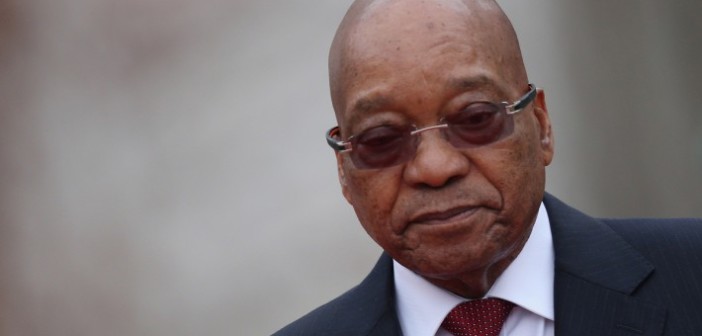The African National Congress (ANC) has sunk to its lowest abyss yet as the crisis facing President Jacob Zuma got notched up with a damning verdict by the South Africa constitutional court.
The judgment relates to Zuma’s failure to return state funds ($23m) used to improve his rural residence. The ruling African National Congress (ANC) responded to the verdict with a short statement saying it welcomed and accepted the court’s judgement.
Zuma’s final term as president doesn’t end until 2019 – but a growing number of people want to see him removed from office long before then. South Africa’s opposition has filed a motion to have President Jacob Zuma impeached after the nation’s highest court ruled that he had violated the constitution.
In a damning verdict likely to have far-reaching political consequences, the Constitutional Court declared that the president failed to “uphold, defend and respect” the nation’s constitution. The political saga started six years ago, with upgrades to Zuma’s Nkandla mansion in the KwaZulu-Natal province. The 73-year-old leader insisted that the money was being spent on security upgrades, but his lawyer has since admitted that improvements included a swimming pool, amphitheatre and cattle enclosure.
In 2014, an investigation by the public protector estimated that the total cost to the South African taxpayer totalled £15m ($23m). “Zuma’s primary sin wasn’t that he had the state upgrade his homestead, but that he covered it up; that he denied that he knew about it or asked for it.
The court case was brought by the Democratic Alliance (DA), the country’s main opposition group, as well as the Economic Freedom Fighters (EFF), a socialist party that splintered off the ANC. Zuma has suffered numerous scandals in recent years and has become increasingly unpopular with voters. His approval rankings have plummeted from 64 per cent in 2011 to 36 per cent this year. His decision to fire Nhlanhla Nene, the country’s respected finance minister, triggered nationwide protests and saw the rand nose-dive in December. “The episode solidified his reputation for capricious decision-making,” says The Economist.
In a unanimous judgement, the court ruled that Zuma had flouted the constitution by using state funds and ordered him to pay back a portion of the costs. The judges also pointed the finger at the ANC-dominated parliament for failing to hold the president to account.
Delivering the verdict, chief justice Mogoeng Mogoeng told public officials to remember that the law is the “sharp and mighty sword that stands ready to chop the ugly head of impunity from its stiffened neck”.
The ruling has been widely viewed as welcome proof of the judiciary’s independence and the health of the country’s young democracy. “It has shown that it will protect the public from the abuse of power and will not be a political crony of the government,” says the BBC’s Milton Nkosi.




